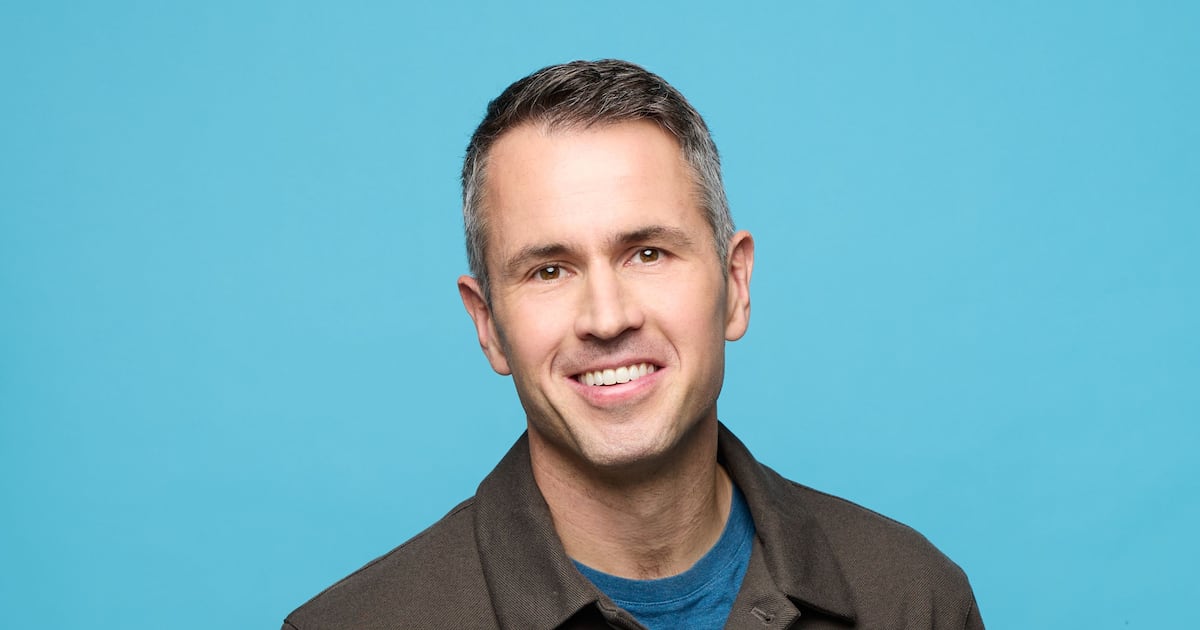Entertainment
Kieran Cuddihy Launches New Era on Liveline Amid Controversy

Kieran Cuddihy commenced his role as the new host of Liveline on RTÉ Radio 1 this week, marking a significant reboot for the station. The transition was notably highlighted by the absence of the familiar banjo-driven theme music associated with his predecessor, Joe Duffy. Instead, the show now features a more generic opening tune, which Cuddihy acknowledged while reassuring listeners that the show’s phone number remains unchanged. “They haven’t changed everything,” he stated, reflecting the broader changes within the station’s schedule.
This overhaul has positioned Liveline under intense scrutiny, as it remains the only non-news programme maintaining its traditional weekday time slot. The show’s enduring legacy, coupled with the contentious nature of Cuddihy’s appointment, sets the stage for a dynamic conversation landscape. During his initial broadcasts, the host grappled with pressing societal issues, particularly focusing on the theme of change, though the discussions were often somber.
In a poignant segment, Naeem Iqbal, a resident of Portlaoise, shared a distressing account of a violent attack on his friend Abdur and another individual, attributing it to a growing “wave of racism” towards migrants. Iqbal, who has previously run for local office, expressed concern over the changing attitudes towards immigrants in Ireland, pointing to the rise of racist abuse on social media and defaced election posters. He described the current climate as alarming, despite his fondness for Ireland as his home.
Cuddihy, responding to Iqbal’s poignant remarks, noted the overwhelming number of racist comments flooding the Liveline WhatsApp number. “This is possibly a dispiriting point to make,” he remarked with a hint of understatement, recognizing the gravity of the topic. The next day, the conversation continued with another caller, Andrea, a teacher from Co Meath, who criticized the misuse of the national flag as a symbol of anti-migrant sentiment.
These discussions illustrate a growing divide in public opinion. Cuddihy engaged with a caller named Christopher, who contested the notion that the display of the Tricolour flag was inherently racist, interpreting it instead as a “sign of hope” for those feeling marginalized. Nevertheless, Christopher also expressed concern over the influx of migrants, voicing his belief that such issues are underrepresented in mainstream media. Cuddihy, maintaining a friendly rapport with his callers, acknowledged the frequency of immigration debates he has participated in, even as he pressed on with the topic.
While the discussions on Liveline were challenging, they showcased Cuddihy’s ability to navigate complex social issues. His first week also coincided with conversations surrounding the significant failures in the healthcare system for children with special needs, underscoring the difficulties faced by many families.
New Presenters Bring Fresh Perspectives
In contrast, the revamped Drivetime show, hosted by Katie Hannon and Colm Ó Mongáin, launched with a smoother transition. The duo has quickly adapted to their roles, handling a variety of topics with skill. Hannon’s sensitive interview with Dylan Gallagher, a survivor of rape, illustrated their ability to balance tough conversations with lighter subjects, such as public transport frustrations and personal anecdotes about single life.
Despite minor adjustments needed in their on-air chemistry, the early signs for Drivetime are promising. The presenters navigated complex narratives with nuance, appealing to listeners with both serious and relatable content.
Meanwhile, David McCullagh faced a challenging start on his show, succeeding the well-regarded Claire Byrne. With an earlier start time of 09:00, McCullagh aims to engage an audience that is often fatigued from prior programming. His engaging style was evident in a lively interview with Ivan Yates, where he skillfully handled the guest’s controversial opinions. Balancing lighter segments with substantive discussions, such as Denis O’Brien’s remarks on graduate expectations, McCullagh is carving out his own niche.
As these presenters settle into their roles, the changes at RTÉ Radio 1 reflect a broader evolution in broadcasting. Audiences accustomed to familiar voices may initially resist the new lineup, but the refreshing perspectives and engaging content suggest a positive trajectory for the station.
In a competitive media landscape, maintaining listener loyalty while introducing new voices and formats is essential. The success of this revamped schedule will ultimately hinge on how well the presenters resonate with their audience, particularly as they tackle important social issues amidst ongoing changes in Irish society.
-

 Top Stories2 months ago
Top Stories2 months agoTributes Surge for 9-Year-Old Leon Briody After Cancer Battle
-

 Entertainment4 months ago
Entertainment4 months agoAimee Osbourne Joins Family for Emotional Tribute to Ozzy
-

 Politics4 months ago
Politics4 months agoDanny Healy-Rae Considers Complaint After Altercation with Garda
-

 Top Stories3 months ago
Top Stories3 months agoIreland Enjoys Summer Heat as Hurricane Erin Approaches Atlantic
-

 World4 months ago
World4 months agoHawaii Commemorates 80 Years Since Hiroshima Bombing with Ceremony
-

 Top Stories2 months ago
Top Stories2 months agoNewcastle West Woman Patricia Foley Found Safe After Urgent Search
-

 Top Stories4 months ago
Top Stories4 months agoFianna Fáil TDs Urgently Consider Maire Geoghegan-Quinn for Presidency
-

 World4 months ago
World4 months agoGaza Aid Distribution Tragedy: 20 Killed Amid Ongoing Violence
-

 World4 months ago
World4 months agoCouple Convicted of Murdering Two-Year-Old Grandson in Wales
-

 World4 months ago
World4 months agoAristocrat Constance Marten and Partner Convicted of Infant Murder
-

 Top Stories3 months ago
Top Stories3 months agoClimbing Errigal: A Must-Do Summer Adventure in Donegal
-

 Top Stories3 months ago
Top Stories3 months agoHike Donegal’s Errigal Mountain NOW for Unforgettable Summer Views









